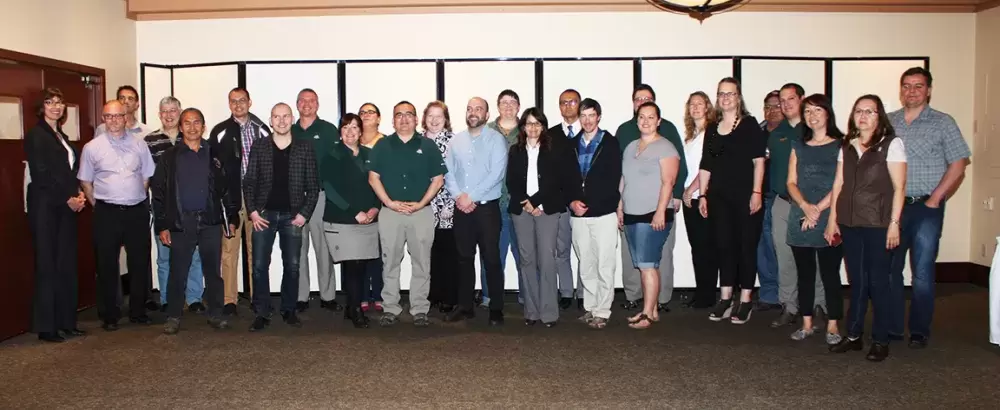Parks Canada has money to spend on goods and services and they’re opening the door to First Nations to cash in.
“Big money goes out and not much of it goes to Aboriginal business,” said Sheldon Wickstrom, First Nations program manager, Parks Canada. He said there are various reasons why this happens, one of which is the lack of capacity in aboriginal communities to meet the need.
Parks Canada has been working on ways in which to support aboriginal businesses and they hosted the forum, Doing Business with Parks Canada and other Federal Departments.
The form was held May 13 at the Best Western Barclay Hotel in Port Alberni and was attended by people from the mid-island communities from Port Renfrew to Tofino.
The business forum was hosted by Parks Canada in partnership with Aboriginal Affairs and Northern Development Canada (AANDC), Public Works and Government Services Canada.
“This forum is the first of its kind for Parks Canada and we are pleased to see the interest,” said Matthew Payne of Parks Canada.
“It’s really about doing business with the Government of Canada and how we may get together with First Nations businesses to pursue economic development for First Nations and to help us in the business that we do,” said Payne.
Pacific Rim National Park Reserve runs through the territories of nine Nuu-chah-nulth nations. The Long Beach Unit includes Tla-o-qui-aht and Yuucluthaht territories; the Broken Group Unit includes Toquaht, Tseshaht, Hupacasath, and Uchucklesaht, while the West Coast Trail unit includes Huu-ay-aht, Ditidaht and Pacheedaht territories.
National parks and historic sites are neighbors with hundreds of First Nations villages all across Canada and it is for that reason that Parks Canada is looking for sustainable, long-term partnerships with the aboriginal communities.
Nadine Crookes, Director of First Nations Parks Canada, an employee and Ahousaht member, delivered a presentation following a traditional welcome from representatives of Tseshaht and Hupacasath. She spoke of the Aboriginal Engagement Framework which helps guide government agencies toward their commitment to working with Aboriginal people in a meaningful way.
“First Nations should expect economic benefits and a mutually beneficial relationship that should come with having national historic sites right in their back yards,” said Crookes.
Julia Kristjanson from AANDC talked about Canada’s Procurement Strategy for Aboriginal Business (PSAB). She said her department supports the growth and development of Aboriginal businesses and their new strategy will allow First Nations to compete fairly for Government of Canada contracts through federal procurement practises.
Federal departments and agencies purchase a wide variety of goods and services every year. The PSAB requires mandatory set-asides for aboriginal businesses when 80 per cent or more of the population is aboriginal.
The PSAB lays out other avenues by which Aboriginal business people may get their foot in the door to government contracts and it offers free advertising through its online Aboriginal Business directory to registered businesses.
Karen Haugen, Huu-ay-aht Nation member and long-time Parks Canada employee, talked about what she observed with her employer over the years. There are Aboriginal members of the Parks staff along with youth programs for aboriginal children sponsored by Parks Canada.
There have been exchange programs for aboriginal youth that allow cross-learning, all supported by Parks Canada.
Three Nuu-chah-nulth nations – Huu-ay-aht, Tla-o-qui-aht and Pacheedaht – each have parks guardian programs that are supported by Parks Canada. In addition, Parks Canada will hire local cultural dance/drum groups to perform at Parks celebrations and there are many aboriginal people contracted to supply firewood to campsites.
When Pacific Rim National Parks moved their offices to the highway junction, Haugen said she was tasked with purchasing office furniture. An online search brought up an Aboriginal-owned business that supplied office furniture and she contracted with them.
The intent of Parks Canada is to find ways to work together with First Nations to increase economic development opportunities for First Nations and to create long-term relationships.
For more information about Aboriginal business opportunities or to register your business in the Aboriginal Business Data Base, call the PSAB helpline at 1-800-400-7677 or visit the Aboriginal Affairs and Northern Development website.







